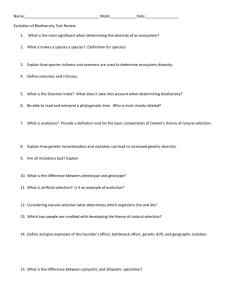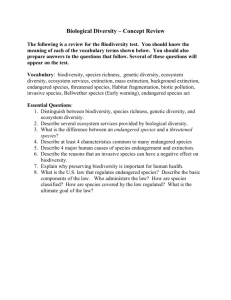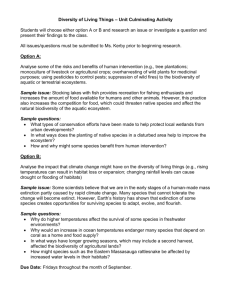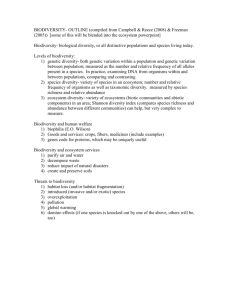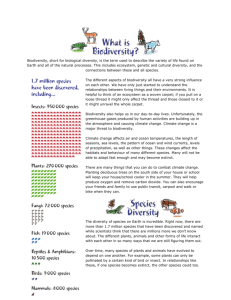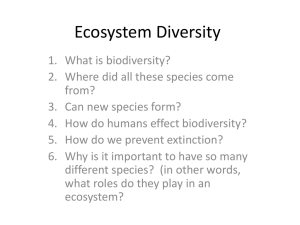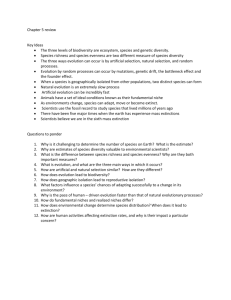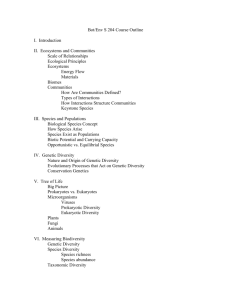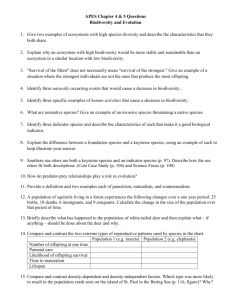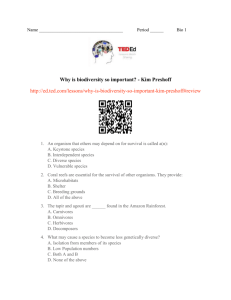APES Chapter 4 Questions Biodiversity and Evolution All answers
advertisement
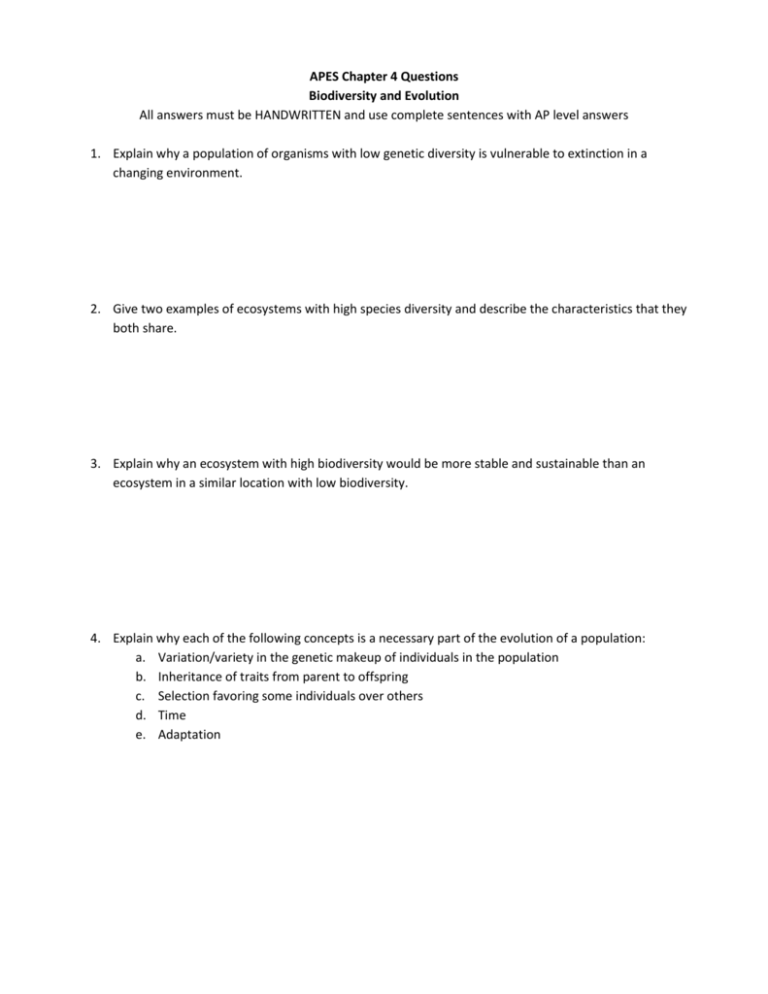
APES Chapter 4 Questions Biodiversity and Evolution All answers must be HANDWRITTEN and use complete sentences with AP level answers 1. Explain why a population of organisms with low genetic diversity is vulnerable to extinction in a changing environment. 2. Give two examples of ecosystems with high species diversity and describe the characteristics that they both share. 3. Explain why an ecosystem with high biodiversity would be more stable and sustainable than an ecosystem in a similar location with low biodiversity. 4. Explain why each of the following concepts is a necessary part of the evolution of a population: a. Variation/variety in the genetic makeup of individuals in the population b. Inheritance of traits from parent to offspring c. Selection favoring some individuals over others d. Time e. Adaptation 5. "Survival of the fittest" does not necessarily mean "survival of the strongest." Give an example of a situation where the strongest individuals are not the ones that produce the most offspring. 6. Describe two important effects that tectonic plate movement has had on the evolution and distribution of life on earth. 7. Identify three naturally occurring events that would cause a decrease in biodiversity. For each event you identify, describe the type of biological diversity that is affected (species diversity, genetic diversity, ecosystem diversity, or functional diversity) and how it is decreased. 8. Compare and contrast background extinction and mass extinction. Use a Venn diagram or chart listing similarities and differences. 9. Identify three specific examples of human activities that cause a decrease in biodiversity. For each activity you identify, describe the type of biological diversity that is affected (species diversity, genetic diversity, ecosystem diversity, and functional diversity) and how it is decreased. 10. Compare and contrast artificial selection with natural selection. Use a Venn diagram or chart listing similarities and differences. 11. Design an experiment to investigate the relationship between the species richness of an ecosystem and its resistance to an environmental stressor such as drought or invasion of an insect pest. Your design should include your hypothesis, procedure, dependent and independent variables, controls, and type of data you will collect. 12. Draw and label a sketch showing four islands (labeled A, B, C, and D ) of different size and different distances from the mainland, which is the source of new species for the islands. Indicate which island(s) would have the highest species richness and which would have the lowest. Explain your answer. 13. What characteristics indicate that Homo sapiens is a generalist species? 14. In what situation(s) would a specialist species have an advantage over a generalist species? 15. Under what circumstances would a nonnative species NOT be a threat to native species? 16. Identify three indicator species and describe the characteristics of each that make it a good biological indicator. 17. What characteristics of amphibians make them vulnerable to extinction? 18. Explain the difference between a foundation species and a keystone species, using an example of each to help illustrate your answer.
